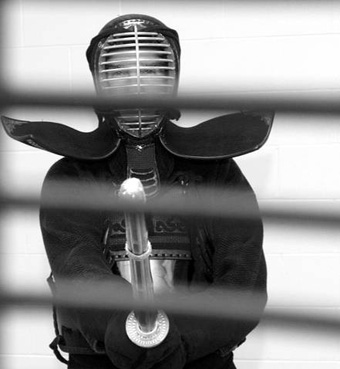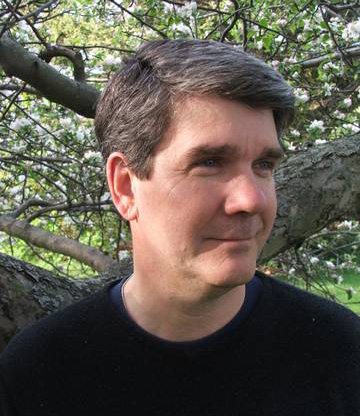Connecticut's Exclusive MMA Coverage
For Connecticut Residents Who Love MMA
ARCHIVED STORY┬Ā┬Ā┬Ā SPRING/SUMMER 2012
Connecticut Author John Donohue
on Martial Arts
┬Ā┬Ā Professor John Donohue,┬Āwho is the Vice President of academic Affairs at Albertus Magnus College in New Haven, is also the author of series of suspense novels detailing the misadventures of Connor Burke -- a college teacher who studies the Japanese martial arts. Burke was introduced in the 2003 thriller SENSEI with his instructor Yamashita.
┬Ā┬Ā Donohue, who lives in New Haven, has also written non-fiction that includes HERDING THE OX: THE MARTIAL ARTS AS MORAL METAPHOR. He is an associate editor for the┬ĀJournal of Asian Martial Arts.┬Ā His website can be found at┬Ā┬Āhttp://johndonohue.net/
Q:┬ĀYou have studied several Japanese martial arts, although Karate and Kendo seem to be your primary focus. What do the different arts you study bring to the table for you as a martial artist?
A:┬ĀAll the modern arts address a slice of the combat spectrum. They have their strengths and their weak-nesses. Studying a variety of arts helps you fill in some of the technical gaps. Karate taught me how to hit and how to block. Judo taught me how to fall and how to do execute throws and do groundwork. Aikido expanded my appreciation for centering, direction and momentum shifts and joint locks.
┬Ā┬Ā But most importantly, an exposure to different arts also permits you to see the underlying connections in technique and helps you be a little bit more respectful of different systems.
┬Ā┬Ā┬ĀQ:┬ĀBurke, although he is interested in Eastern thought, often seems to reflect on his Catholic background in times of stress. I notice that one of your forthcoming books, THE BINDING, deals with spiritual issues from a Catholic point of view. Do you have any thoughts on this?
A:┬ĀThis is part of the background I bring to the character. A Catholic upbringing is fairly formative and long-lasting, no matter what directions your life takes you in (itŌĆÖs like what they used to say about the IRAŌĆöonce in, never out). So to give Burke a bit of verisimilitude I include this tendency. To my mind it makes him seem a little more real.
┬Ā┬Ā The ideas that IŌĆÖm working on in THE BINDING are not specifically Catholic in nature (the event is from the book of Genesis in the Hebrew Bible) but has been an enduring item of discussion and reflection in the Judeo-Christian tradition.
Q:┬ĀDo you have any opinions on other authors that have written thrillers based on martial arts such as Barry Eisler (RAINFALL), Warren Murphy (THE DESTROYER) or Trevanian (SHIBUMI)? Are there other authors in this genre you admire? What do they do right in your opinion? And what have others done wrong?
A:┬ĀIŌĆÖve read them all and enjoyed them all. TrevanianŌĆÖs stuff was more nuanced and erudite. Barry EislerŌĆÖs is more fully in the secret agent tradition. I was once lucky enough to be on a panel with him at a writerŌĆÖs conference and to be at a dinner party with a bunch of authors. I always hoped I could get him to write a blurb for one of my books, but it seems heŌĆÖs way too busy. And the Destroyer seriesŌĆ”way over the top but there was a sort of guilty pleasure in reading it and Chiun, of course, was an absolute hoot.
┬Ā┬Ā I think each of the authors brings his own personal perspective on the arts to his writing. Very often itŌĆÖs not my perspective, but IŌĆÖve learned never to criticize a writer for writing the book he wanted to write instead of the book I wanted him to write.
┬Ā┬Ā For my money, if you want to read some good prose on hand to hand fighting, pick up any of the Quiller series by Adam Hall. He had some training and was a really good writer.
Q:┬ĀI read a description of your forthcoming book WAVE MAN. Could you describe the key theme to the book? And what is the art studied by the main character?
A:┬ĀWave Man is about a leg-breaker, an enforcer for a crime boss, who starts to develop a conscience and is looking to make a new and different life for himself. Wave Man is the translation of the Japanese Ronin--a masterless samurai, a sword for hire. Part of the main character's search involves the study of Daito-Ryu aikijutsu, a fighting system that influenced the tech-nique of modern aikido.
Q:┬ĀDIM MAC, another book you have coming, seems to be about charlatanry in the martial arts community and looks pretty funny. What com-pelled you to write this?
A:┬ĀWell, there's humor in everything, isn't there? I was thinking about the American public and it's fascination with and ignorance about the martial arts. And also thinking about the egos you sometimes come across in the martial arts world. What would happen, I wondered, if someone who was an OK martial artist figured out how to exploit American gullibility and made a career out of it? The answer is in the subtitle of the novel: A Series of Unfortunate Events.
Q:┬ĀWill your fiction extend into other genres?
A:┬ĀFor right now, I'm fairly heavily involved in the thriller/adventure┬Ā genre. My meager talents are a good fit.
Interviewed by Brian Woodman Jr.┬Ā┬Ā
Q:┬Ā┬ĀI notice that there are definitely some similarities between yourself and your fictional character Connor Burke. How much of Burke is actually you?
A:┬ĀThere are some basic similarities between Connor Burke and myselfŌĆöthe Irish American background, a large extended family, academic work that has been combined with martial arts training. After all, the dictum in the writing game is ŌĆ£write what you know.ŌĆ?
┬Ā┬Ā But (and itŌĆÖs a big but) Connor Burke is like me on steroids. In the first place, he is a much more skilled martial artistŌĆöheŌĆÖs devoted his life to it. I have simply lingered on in the dojo and, while itŌĆÖs always been an important part of my life, IŌĆÖve pursued other things. So I have a career for instance (working in higher education). Most importantly, IŌĆÖm not as isolated. I have a wife and family (married almost 33 years now). Two dogs. In other words, a life outside the dojo.
Q:┬ĀIs Yamashita based on an actual person?
A:┬ĀYamashita is a synthesis of a bunch of people. IŌĆÖd like to think that his prototype exists somewhere out there, but as I constructed the character I thought of some of the more remarkable (and intimidating) sense I had crossed paths with. I took what I thought were some of their most notable features and rolled them all into one martial arts master.
Q:┬ĀWhat first drew you to the martial arts? Which art would you consider your core form?
A:┬ĀI was not a terribly physical kid growing up. I was, however, very interested in other cultures and ways of doing things. I found the East Asian martial tradition interesting because it combined physical activity with a deep ideological rationale. I thought that was fascinating and worth a look. And almost 40 years later, itŌĆÖs still fascinating and IŌĆÖm still looking.
ŌĆŗ┬Ā┬Ā┬ĀThe initial formative experience I had was studying Shotokan Karate. The straightforward simplicity of it and the stress on impeccable form made a deep impression on me. As did the practice of kata.
┬Ā┬Ā These days (and actually for the last 16 years or so), I am devoting my time to the study of kendo.
Q:┬ĀIn SENSEI, the emphasis seems to be on Japanese martial arts and culture. This seems to shift slightly but increasingly with each book; DESHI discusses Tibetan Buddhism while TENGU is set in the Philipines. I have not yet read KAGE, which involves Native American culture. TENGU also addresses the perceived schism on traditional martial arts as opposed to reality-based defense systems. Do you have any thoughts to offer on this? And, assuming that there is a fifth Burke book, what will be next?
┬ĀA:┬ĀThe shift (or migration) in story line and themes in the books is a reflection of the needs of the audience. Many of my readers are martial artists and they like those portions of the stories. Many readers arenŌĆÖt martial artists, however. They enjoy the action but are also more interested in the characters and the overall arc of the story. So IŌĆÖve tried to broaden scope of the books a little to attract a wider audience and also try to keep things interesting. The dojo is important but thereŌĆÖs a big world out there with lots of interesting things going on. Why not use some of this?
┬Ā┬Ā And the debate between tradition and efficacy is a never ending one in martial arts circles. The Japanese themselves had it in the 17th and 18th centuries. The real issue is not whether one approach or the other is best. ItŌĆÖs a misleading question. The question is ŌĆ£what are you training for?ŌĆ? If you want to compete in MMA, then IŌĆÖd say that an exposure to traditional┬Āarts couldnŌĆÖt hurt, but that your main focus needs to be in a reality based system oriented toward winning a MMA match. If you want to train in something that can help you do other things (gain self-confidence, or coordination, or better fitness, or get an expanded understanding of how things of the spirit and things of the body can be integrated), then you might want to consider a more traditional form; particularly if youŌĆÖd like to keep training beyond your 30's.
┬Ā┬Ā IŌĆÖm working on the next Burke book now. It will be rooted in the familiar world that Burke has but also include some expanded back story on YamashitaŌĆÖs early years, giving readers a glimpse into events that helped make him what he is nowŌĆ”..


